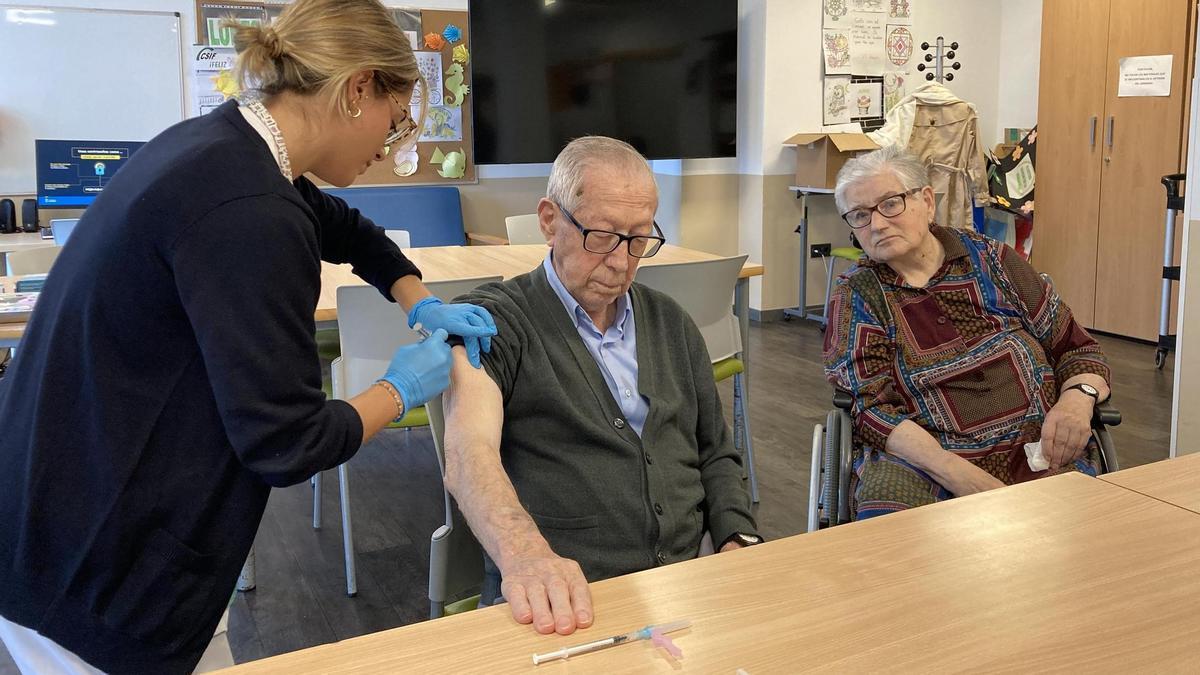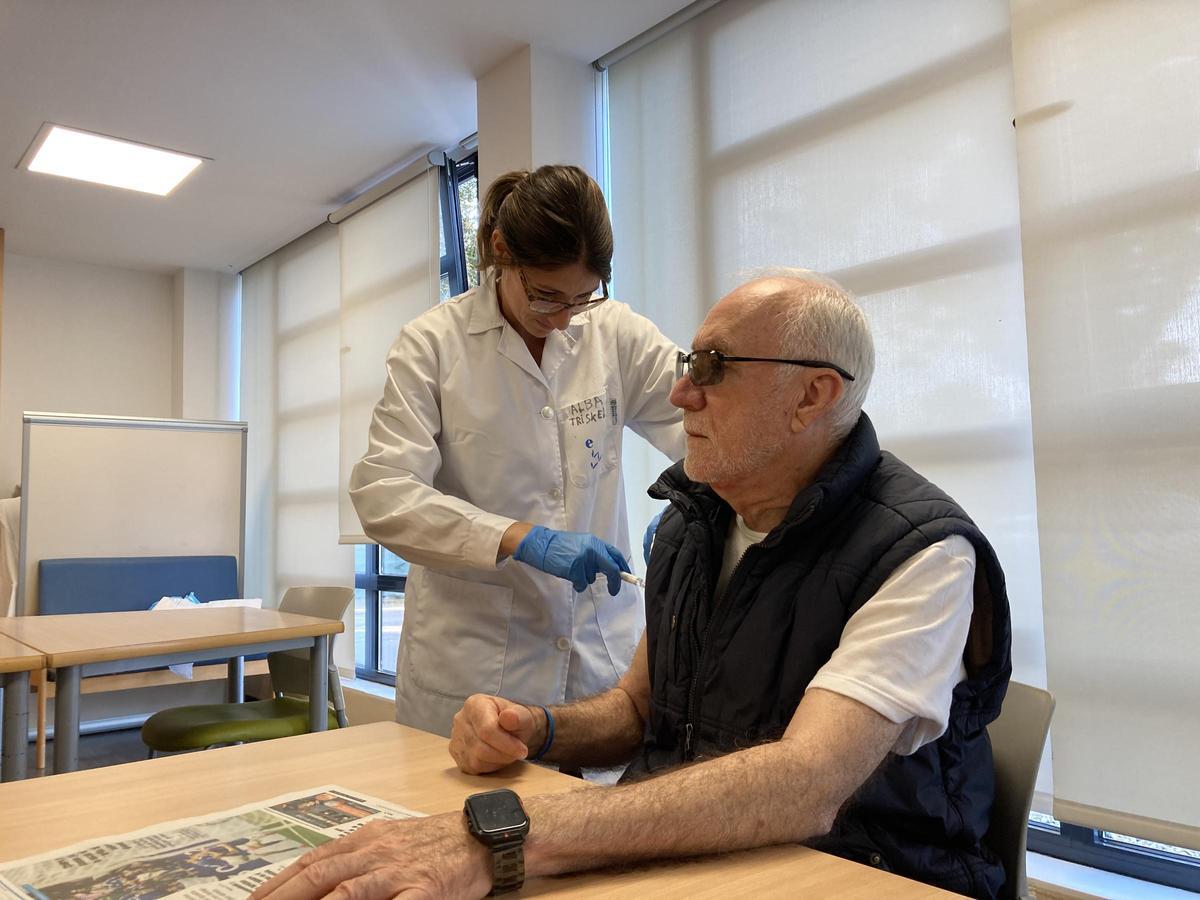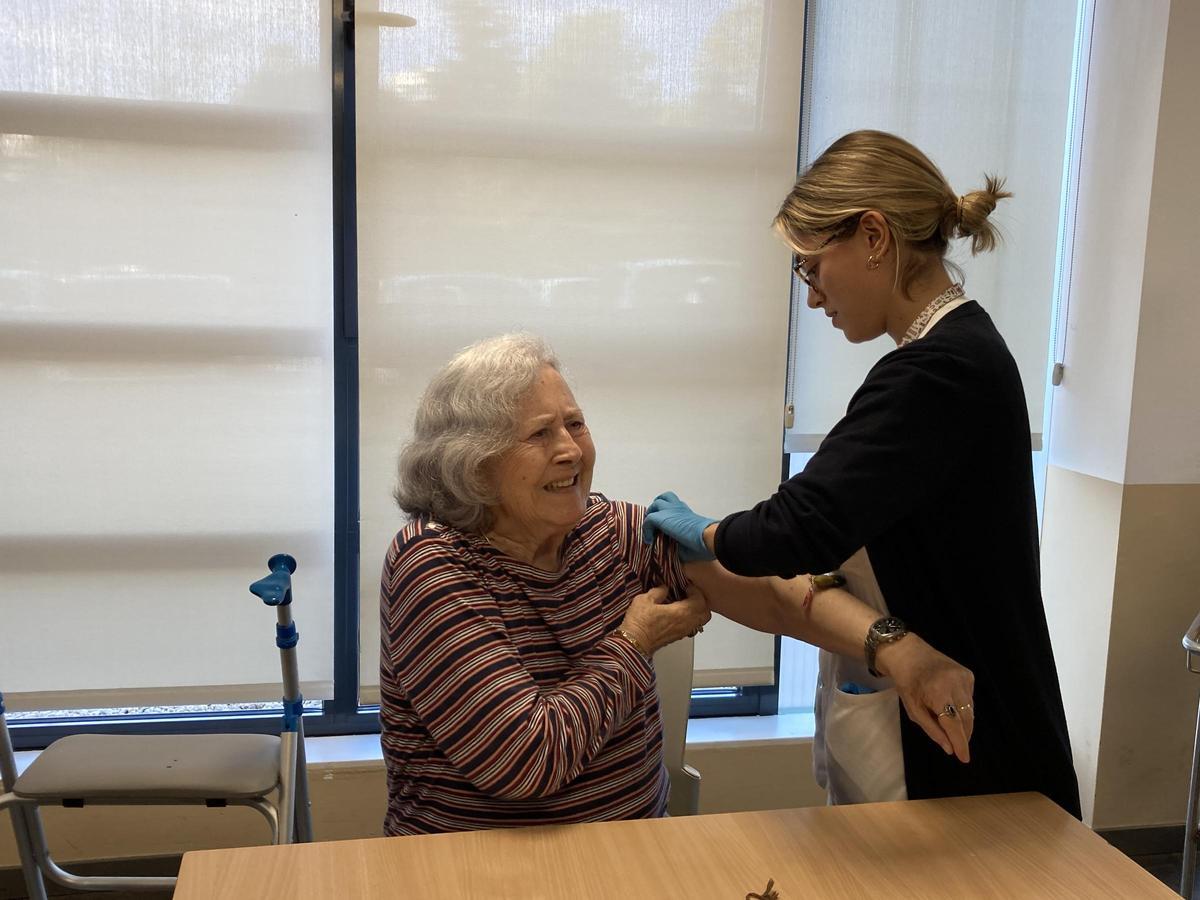“It won’t hurt anything and it’s important that everyone gets vaccinated.”

Humberto Horta calmly reads THE NEW SPAIN as he waits in line to receive the flu and Covid vaccine at the Trisquel nursing home in Oviedo. “Prevention is the best thing you can do. And if public health takes care of it, that’s great for everyone, especially older people.” Cuban by birth and descended from Asturians, Horta never evaded the appointment with the help of a puncture. “Today I am the first,” he emphasizes. And he adds. “I have always been vaccinated and in 77 years I have almost never gotten sick.” Serving reporters, Alba Arenas, the center’s medical services manager, prepares her left arm for the first puncture. “The fact is that 62 out of 67 residents will receive their dose of the vaccine,” he explains.
José Menéndez García replaced Humberto Horta at the vaccination post set up in one of the rooms of the residence. “Let everyone get vaccinated,” exclaims this 81-year-old pixueto, whom “even Covid” could not subdue. “I didn’t even know there was a flu because I haven’t caught a cold since I got the vaccine,” adds Asunción Campa, 72, from Oviedo. “It doesn’t hurt to put it on, but I was scared because it stings a little,” he admits.

Humberto Horta receives the flu and covid vaccine. Alba Arenas puts it on, care coordinator in El Trisquel / A.D.
The vaccination campaign will be extended to the rest of the target population starting next Monday the 7th, with a strategy aimed at reducing the incidence of influenza in the population, as well as reducing the severity and complications associated with the disease in certain groups. . The Department of Health offers five types of flu vaccines to provide each person with the one that best suits their needs. A total of 399,000 doses have been purchased for a total of 4.7 million euros.
Last year, vaccination coverage in nursing homes exceeded 95 percent, and health officials hope to repeat the results this year. About 13,500 people will be vaccinated in the first two weeks of the campaign. “We are again starting with the most vulnerable, because residential buildings are closed spaces in which the likelihood of infection once the virus enters is much higher,” says Marta Huerta, deputy director for care coordination at the Principality’s Health Service (Sespa).
The most important figures for last winter show that there were 180 deaths of patients with confirmed influenza in Asturias hospitals and that the influenza virus was responsible for between 1,500 and 1,600 hospitalizations. According to the ministry, vaccinations “avoided 200 deaths and 2,000 hospitalizations last year.”

Asuncion Campa receives covid and flu vaccine / A.D.
In the area of protection against bronchiolitis caused by respiratory syncytial virus (RSV), this campaign will repeat the immunization of newborns and infants, which gave such good results in the previous season. “We were able to avoid 20 to 25 intensive care unit admissions and nearly 200 hospitalizations,” health authorities said. Immunization against RSV will be provided to all children born since April 1 and other people at risk.
The target population is children at high risk of serious illness from the virus: premature babies under 35 weeks of age, patients with congenital heart defects or at risk of developing bronchiolitis. RSV immunization is also recommended for children under six months of age born between April 1, 2024 and March 31, 2025, the end date of the campaign.
One of the innovations this year is that health centers will be open from 16:00 to 20:00 to immunize children and provide additional options for parents. Vaccinations will be administered at continuing care centers and based on the child population in each. All vaccines will be administered decentralized at primary health care centers and Sespa offices until the end of the season.
For Covid, the Health Service will use a single vaccine in this campaign, which will be available in three forms: for adults, children aged five to 12 years, and children aged six months to five years.
